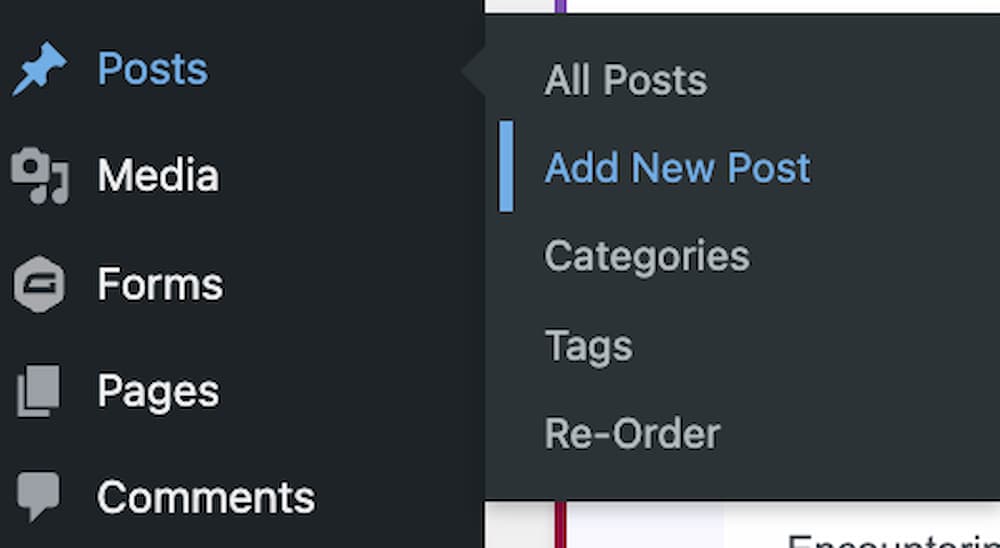Your website represents your hard work and creativity, and the thought of it disappearing due to unexpected issues can be a nightmare. Fortunately, there’s a reliable solution: backups.
In this article, we’ll break down the different types of backups at your disposal, how frequently they back up your site, and the best scenarios to use them for your site. Whether you’re running a personal blog or managing a bustling e-commerce empire, you’ll find a backup strategy tailored to your needs among these options.
How Often Should You Backup Your Site
Important data should be backed up daily or at least once a week. Take a backup as often as you update your site. If you post a blog once per week, you should take a backup once per week (at the same time you post). If you have an e-commerce site, it should be backed up per transaction to maintain accurate inventory numbers.
How long should I keep backups?
Generally, full backups should be kept for a year (or longer depending on the industry), until a new full backup can replace it. Determining how frequently you take backups, how long you should keep (or replace) them, and where to store them depends on your industry needs, standards, guidelines, and business capabilities. These can be broken down to your data retention policy and backup strategy.
Data Retention Policy
A data retention policy provides uniform guidelines for managing data (like customer records, financial data, or employee files) across various departments and systems before you can safely dispose of them. It improves your ability to discover and retrieve data and helps administrators make informed decisions about handling stored information, including backup schedules, storage locations, and archival processes.
Laws and regulations determine how long an industry should keep certain types of data. A data retention policy will help you understand your storage needs and allocate funds for storage costs. There are three areas to consider when creating your data retention policy.
1. Legal and Regulatory Compliance
Laws and regulations require different industries and regions to follow specific data retention guidelines. Some examples of industries with their own unique data retention regulations are
- Healthcare: the Health Insurance Portability and Accountability Act of 1996 (HIPAA) rules dictate how medical and patient data should be kept, but the specifics can differ by state. For instance, HIPAA requires retaining certain records for six years, and failing to comply can lead to legal trouble, fines, or harm to your organization’s reputation.
- Insurance: regulations vary by state for different types of insurance policies but there are set retention periods. Cyber insurance specifically has its own unique compliance requirements.
- Finance: Lengthy laws and legislation like the Bank Secrecy Act, Electronic Funds Transfer Act, and more dictate how long banking and financial institutions must retain their data.
- Education: Universities face their own unique set of circumstances. They store extensive student information, conduct research (subject to government regulations), and often have servers on-premises and private clouds. Larger universities even have medical centers and hospitals. With the vast amount of data education centers house, they are subject to high standards of data protection.
2. Data Security and Privacy
Cybercriminals often target outdated or unused data to evade detection. You can lower your vulnerability to data breaches by disposing of unnecessary data. Your data retention policy needs to outline how and when to dispose of data to minimize the risk of security breaches.
3. Efficient Storage Management
We’ll be honest, data storage is not always cheap, especially if vast amounts need to be stored for long periods of time. A clearly defined data retention policy will specify the duration for retaining various types of data, preventing unnecessary storage expenses.
Grandfather - Father - Son (GFS) Backup Strategy
A common backup strategy is the Grandfather – Father – Son (GFS) strategy. It involves various backup types in chronological order.
- Grandfather – monthly full backups (stored off-site or in the cloud)
- Father – weekly full backups (kept locally)
- Son – daily incremental backups (temporary solutions to support father backups)
Consider data age, importance, and role within the overall backup strategy when looking at how long to keep each type of backup. This will further help in deciding where to keep these backups (on-site, off-site, cloud, etc.)

3-2-1 Backup Strategy
Another common backup strategy is the 3-2-1 strategy. Though originally conceived when data volume wasn’t as large, it is still effective today with some hard drives holding 22TB of data and cloud storage options. Additional storage concerns with the 3-2-1 strategy include how a specific storage medium handles security and failover contingencies.
Here’s how it generally works:
- Three Copies: Ensure you have three copies of your data – one on your primary device and at least two backups.
- Two Storage Devices: Utilize two different storage devices, offering flexibility in selection, such as your PC, external hard drive, cloud storage, or others.
- One Off-Site Backup: Maintain one backup copy off-site to mitigate risks associated with local disasters or site-specific failures, safeguarding against data loss.
What do Full Backups cover?
Full backups offer complete coverage for websites with intricate structures and frequent updates. They create an exact copy of the entire website, ensuring no aspect is left vulnerable. They are the go-to choice for large e-commerce websites and expansive enterprises that deal with intricate product catalogs, substantial customer data, and many interconnected pages.
Essentially, where changes occur regularly, full backups are a crucial safeguard.
Weekly or on-demand full backups act as a safety net in case of unexpected challenges. Whether it’s a glitch, an attack, or the need to roll back to a previous state, full backups stand ready to restore the website to its complete and secure form.

When should I use Incremental Backups?
Incremental backups are tailored for websites that regularly update their content, like blogs and content-heavy sites. Blogs thrive on daily or weekly content updates and news or informative-rich websites always benefit from fresh material.
Instead of duplicating the entire website, they focus only on what records have changed since the last full backup. This approach saves time and resources.
Incremental backups should be taken daily or as needed, depending on the frequency of updates and changes to your website. This ensures you capture every update and revision made during the day, providing a detailed history of changes.
For websites with less frequent updates, you can adjust the frequency of incremental backups to match your update schedule. You want to strike a balance between securing data protection and avoiding excessive resource consumption. Assess your website’s update pattern and choose a backup frequency that meets your specific needs.
What is meant by Differential Backup?
Similar to incremental backups, websites that experience substantial daily changes will benefit from Differential Backups. They keep track of data alterations since the last full backup, making them considerably faster to restore than incremental backups.
The main difference between incremental and differential backups is how they conserve storage space and time – achieved by only retaining altered files.
What are Cloud Backups?
Cloud Backups are best implemented for sites requiring high data security. Whether you run a small e-commerce store, a bustling blog, or a medium-sized enterprise, your data’s security should always be a priority. The cloud stores copies of your website in remote, highly secure servers, shielding your data from on-premises disasters, cyber threats, or any unforeseen events.
You can sync with your chosen backup type (full, incremental, or differential). Cloud Backups ensure that your website’s critical components, regardless of size or scope, are protected in an offsite fortress.
What is a Snapshot-Based Backup?
Snapshot-Based Backups (also known as image-based backups) are like digital time capsules. They freeze your website at a precise moment, s replica of the entire architectural instance of an application, disk, or entire system. It’s a photograph of your website’s health and content at an exact point in time. Snapshot backups restore a specific device’s system or disk to a precise point in time
Snapshots can be created on-demand or scheduled. Snapshots are generally used for testing application software and data protection. If your website holds mission-critical data or requires strict version control, Snapshot-Based Backups are your best friend.

What is the meaning of Continuous Replication?
Also known as continuous data protection or real-time protection, Continuous Replication is the pinnacle of real-time readiness. It automatically saves a copy of every change on your website. This type of backup is essential for financial institutions, stock exchanges, or critical infrastructure (Energy, Communications, Water, and Transportation).
Downtime can impact the financial, health, and wellness of others which Google takes very seriously under their YMYL guidelines. Continuous Replication ensures that your website is always up and running – like a real-time insurance policy – against interruptions, safeguarding your operations 24/7.
Secure Your Digital Presence With My Website Spot
Your website’s safety and reliability are paramount in the ever-evolving internet. We’ve broken down the types of backups at your disposal and given you a glimpse at their usage. Now, it’s time to take action and reinforce your online presence.
At My Website Spot, we stand ready to be your steadfast allies in the realm of web hosting. We wish for your website to thrive under the shield of security, your data to remain safeguarded, and your online endeavors to flourish. As the guardian of your digital realm, take the necessary steps to ensure its prosperity.
Our hosting services not only provide robust security but also offer comprehensive backup solutions to ensure your website’s resilience. Don’t leave the protection of your digital kingdom to chance. Contact us today to fortify your website against the uncertainties of the online world.



